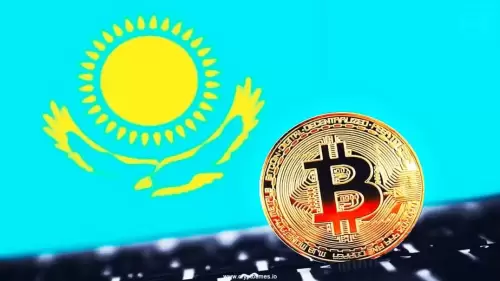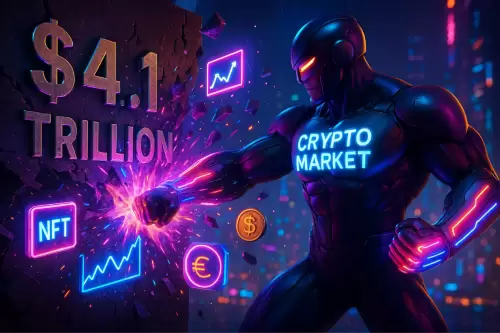 |
|
 |
|
 |
|
 |
|
 |
|
 |
|
 |
|
 |
|
 |
|
 |
|
 |
|
 |
|
 |
|
 |
|
 |
|
该媒体发布阐明了根据《金融服务与市场法》第9部分的规定范围

On 30 June 2025, Part 9 of the Financial Services and Markets Act 2022 ("FSMA") and other miscellaneous provisions will come into effect. A licence under Part 9 of the FSMA may be required in the following circumstances:
2025年6月30日,《 20022年金融服务与市场法》第9部分(“ FSMA”)和其他其他规定将生效。在以下情况下,可能需要根据FSMA的第9部分获得许可证:
* if you are an "Affected Person" (generally, a person performing financial services in respect of an asset class covered by Part 9 of the FSMA); and
*如果您是“受影响的人”(通常是FSMA第9部分所涵盖的资产类别的财务服务的人);和
* if your activity constitutes a "regulated activity" (generally, providing a service in respect of a "digital token").
*如果您的活动构成“受监管的活动”(通常,提供有关“数字令牌”的服务)。
On 6 June 2025, the Monetary Authority of Singapore ("MAS") published a media release clarifying the scope of regulation under Part 9 of the FSMA. We set out some clarifications on the scope and applicability of Part 9 of the FSMA, based on common queries that we have encountered.
2025年6月6日,新加坡货币管理局(“ MAS”)发布了媒体发布,阐明了FSMA第9部分规定的监管范围。我们根据遇到的常见查询,对FSMA第9部分的范围和适用性进行了一些澄清。
1. What types of activity are covered by Part 9 of the FSMA?
1。FSMA第9部分涵盖了哪些类型的活动?
1。FSMA第9部分涵盖了哪些类型的活动?
Part 9 of the FSMA covers "digital tokens". This refers to both (a) DPTs (e.g. cryptocurrencies such as Bitcoin, Ether, and Litecoin, as well as single-currency stablecoins such as USDC and USDT); and (b) tokens of capital market products (e.g. tokenised equities, tokenised debentures, and tokenised units in fund). Part 9 of the FSMA does not cover "conventional" capital markets products (i.e. capital markets products that are not in "token" form). If one is handling assets that do not fall within the definition of "digital token", then it is likely that Part 9 of the FSMA will not apply. Having said that, if the assets being handled are financial instruments, other Acts (e.g. the Main Acts) may still apply to your activities.
FSMA的第9部分涵盖了“数字令牌”。这是指(a)dpts(例如比特币,以太和莱特币等加密货币,以及单一货币稳定的稳定剂,例如USDC和USDT); (b)资本市场产品的令牌(例如,代币的股票,令牌债券和基金中的令牌单位)。 FSMA的第9部分不涵盖“常规”资本市场产品(即不采用“令牌”形式的资本市场产品)。如果一个人正在处理不属于“数字令牌”定义的资产,那么FSMA的第9部分很可能不适用。话虽如此,如果处理的资产是金融工具,其他行为(例如,主要行为)仍可能适用于您的活动。
By way of illustration, if you are providing securities brokerage services in relation to conventional, non-tokenised equities, such an asset class is not a "digital token" unser the FSMA (since, in the current context, this only applies to a digital representation of an equity that can be transferred, stored, or traded electronically). However, even though Part 9 of the FSMA will not apply to the activity, you may still be conducting a regulated activity under the SFA, triggering licensing requirements unless exempt (from licensing).
通过说明,如果您提供有关传统的,非言语公平的证券经纪服务,那么这样的资产类别不是“数字令牌”,即FSMA(因为在当前情况下,这仅适用于可以传输,存储,以电子方式传输的股权的数字表示,或者是电子)。但是,即使FSMA的第9部分不适用于该活动,您仍可能仍在SFA下进行监管活动,除非豁免(获得许可),否则触发许可要求。
2. What should Affected Persons do next?
2。接下来受影响的人应该做什么?
2。接下来受影响的人应该做什么?
If you are an Affected Person and you believe your activities may constitute regulated activities (e.g. the services that you provide to customers involve assets that are DPTs or capital markets products (whether in token form or otherwise)):
如果您是受影响的人,并且您认为您的活动可能构成受监管的活动(例如,您为客户提供的服务涉及DPTS或Capital Markets产品的资产(无论是以代币形式还是其他形式)):
* You should, in the first instance, consider whether you require a licence under the Main Acts (including whether you meet the standards for licensing under the Main Acts and whether your business has a strong "nexus" to Singapore such as servicing customers in Singapore), or whether you can rely on a licensing exemption under the Main Acts.
*首先,您应该考虑是否需要在主要行为下获得许可证(包括您是否符合主要行为下的许可标准,以及您的业务是否对新加坡的新加坡有很强的“联系”,例如在新加坡为客户提供服务),还是您是否可以根据主要行为依靠许可豁免权。
* Alternatively, you may wish to consider whether it is possible to restructure your activities, such that they do not amount to regulated activities in Singapore.
*另外,您可能希望考虑是否可以重组您的活动,以便它们不像新加坡受监管的活动。
* This should be your primary focus, as Part 9 of the FSMA is not meant to be an alternative licensing regime to the licensing regimes under the Main Acts. There will only be extremely limited circumstances under which MAS will grant an FSMA licence, and MAS has said that it will generally not be issuing licences under the FSMA.
*这应该是您的主要重点,因为FSMA的第9部分并不意味着成为主要行为下许可制度的替代许可制度。在某些情况下,MAS将授予FSMA许可证,而MAS表示,通常不会根据FSMA颁发许可证。
3. What if I am already licensed or exempt (from licensing) under the Main Acts?
3.如果我已经在主要行为下获得许可或豁免(获得许可)怎么办?
3.如果我已经在主要行为下获得许可或豁免(获得许可)怎么办?
If you are an Affected Person and you are already licensed or exempt (from licensing) under the Main Acts:
如果您是受影响的人,并且您已经在主要行为中获得许可或豁免(获得许可):
* You will likely be exempt from licensing under the FSMA (for the same activity that you are licensed or exempt from under the Main Acts).
*您可能会免于FSMA下的许可(对于您在主要行为下获得许可或免除同一活动)。
* You will generally not be restricted from offering your regulated services to customers outside of Singapore, but you should check whether your activities (in respect of these customers outside of Singapore) trigger issues of foreign law.
*通常,您不会限制向新加坡以外的客户提供受监管的服务,但是您应该检查您的活动(对于新加坡以外的这些客户)是否触发外国法律问题。
4. What if I am an employee of a foreign company and I am resident in Singapore?
4。如果我是外国公司的雇员,并且我居住在新加坡怎么办?
4。如果我是外国公司的雇员,并且我居住在新加坡怎么办?
If you are an employee of a foreign company (i.e. the company that employs you is not a Singapore-incorporated company) and you are resident in Singapore, the work you do for that foreign company should not in itself trigger FSMA licensing requirements. However, you should consider whether your activities in Singapore are regulated and trigger regulatory issues under the Main Acts, in respect of the foreign company. For example, some provisions in the Main Acts provide for extraterritorial effect (e.g. section 339 of the SFA provides for the extraterritorial effect of provisions in the SFA, including licensing requirements, if acts are done "partly in" Singapore). A company (even a foreign company) may also be viewed as operating a business "in Singapore" if it has employees located predominantly in Singapore.
如果您是外国公司的雇员(即雇用您的公司不是新加坡的公司),并且您是新加坡的居民,那么您为外国公司所做的工作本身不应触发FSMA许可要求。但是,您应该考虑您在新加坡的活动是否受到监管,并在主要行为下触发监管问题,就外国公司而言。例如,主要法案中的某些规定规定了域外效应(例如,SFA第339条规定了SFA中规定的域外效应,包括许可要求,如果法案在新加坡“部分”中进行了“部分”)。如果一家公司(甚至是外国公司)的业务主要位于新加坡,则也可以被视为“在新加坡”经营业务。
免责声明:info@kdj.com
所提供的信息并非交易建议。根据本文提供的信息进行的任何投资,kdj.com不承担任何责任。加密货币具有高波动性,强烈建议您深入研究后,谨慎投资!
如您认为本网站上使用的内容侵犯了您的版权,请立即联系我们(info@kdj.com),我们将及时删除。
-

- 哈萨克斯坦的加密飞跃:比特币ETF和中亚的数字融资未来
- 2025-08-13 11:59:45
- 哈萨克斯坦通过现场比特币ETF和创新营销在中亚的加密货币场景中大放异彩。看看它的影响。
-

-

-

- 比特币的疯狂骑行:集会,回调,接下来是什么
- 2025-08-13 09:00:19
- 比特币最近在回调之前飙升至122,000美元。检查市场量和链上数据,揭示了对比特币集会和潜在未来的见解。
-

- 比特币,Bitmax和机构需求:加密投资的新时代
- 2025-08-13 08:58:33
- 探索Bitmax的比特币扩展和更广泛的机构采用如何重塑加密货币景观,这是由战略投资和不断发展的法规驱动的。
-

-

- 乘坐加密浪潮:NFTS,DEFI和市场高4.2吨
- 2025-08-13 08:30:46
- 探索加密货币市场的最新趋势,包括NFTS的激增,Defi Innovations和主要见解,推动了该市场的售价4.2吨。
-

- 冷钱包:现金返还,加密货币和像老板一样的汽油费
- 2025-08-13 08:20:49
- 冷钱包改变了游戏。获得汽油,掉期等的现金返还。这是我们所知道的高加密费的终结吗?让我们潜入!
-































































